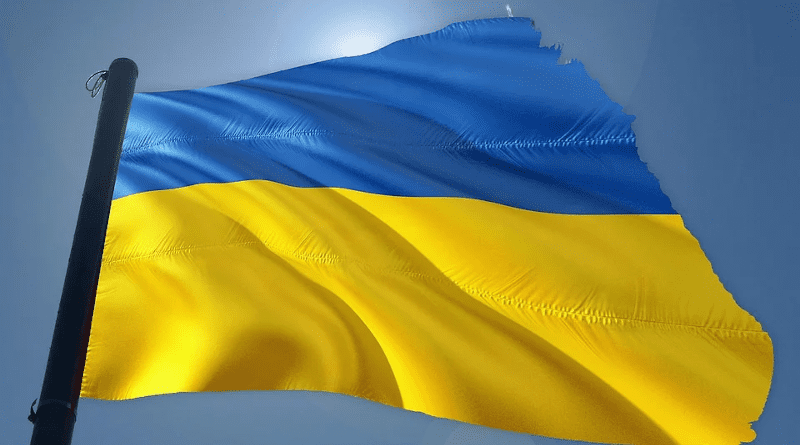Ukraine Will Need ‘Staggering’ Financial Support, Says World Bank MD
By EurActiv
By Benjamin Fox
(EurActiv) — The World Bank is ready to provide “staggering” sums of financial support to Ukraine amid the Russian invasion and the aftermath, Managing Director for Operations, Axel van Trotsenburg, told EURACTIV in an interview.
For the moment, with the Russian invasion and bombardment of Ukrainian cities at the height of its intensity, the World Bank and the wider international community is still analysing the potential economic hit to Ukraine.
“One important driver is the length of the conflict, and second is the intensity of the war,” said van Trotsenburg, adding that with the Russian army increasingly targeting civilian buildings, the size of the financial relief effort will also depend on the destruction to housing and infrastructure.
“It is fair to see from the pictures that these are going to have to be staggering amounts,” he added.
In the meantime, the Washington-based bank has already agreed to provide funding to Kyiv to help pay for the continued operations of the state. This includes covering pensions, the salaries of teachers and health workers, and financial support for healthcare and basic education services, which it is coordinating with the finance ministry in Kyiv.
For the moment, van Trotsenburg argues that the emphasis is on how funding and humanitarian aid can get to the front line.
“What is most important is who is going deliver. In times of crisis, you have to act fast and with volume,” he says, pointing out that over the last three weeks, the bank has delivered over $920 million and is committed to providing $3 billion of support for Ukraine.
However, the response to the COVID pandemic has provided a precedent of how the World Bank could rapidly scale up its financial support packages.
“When the COVID crisis started, we also realised that the developing countries would need a massive amount of support,” said van Trotsenburg.
“In 2020 and 2021 we provided $135 billion to developing countries, middle and low-income countries, that is almost a $50 billion surge compared to the two years before COVID,“ he said, adding that “this should indicate that the World Bank has the resolve and resources during crisis times to act quickly and with the volumes necessary to make a difference.”
In addition to its direct support for the Ukrainian government, the bank also provides technical and financial support for the refugee response by neighbouring countries, including Moldova, Romania and Poland.
Analysts are also starting to gauge the impact of the war and the sanctions packages against Russia and Belarus on food, commodity, and energy markets. Quite a few countries will be very negatively affected, and they will need a balance of payment support and social support.
In Ukraine, van Trotsenburg says that a critical moment on food production will come next month.
“The seed season in Ukraine is in the first week of April, and we will have to see they will be able to seed. This will have a huge impact on the harvest and how much they can feed themselves,” he told EURACTIV.
In particular, the potential for colossal disruption of the wheat and fertiliser markets could have profound implications for food supply, particularly for developing countries that rely on wheat imports from Ukraine and Russia.
“We are evaluating the short and medium-term effects of falling exports from Ukraine and Russia to developing countries and how we can best support them,” said van Trotsenburg.
“We will be ready to come to the support of many countries in the next few months with whatever it takes. My sense is that we are willing to provide billions of dollars in support if that is necessary,” he added.
In recent years, one issue that has worried the humanitarian aid community is that donor fatigue appears to have led funding summits for Syria, Yemen, and the Sahel to fall well short of the resources needed. Others fear that the Ukraine crisis could mean that other crises in the world may be ignored as a result.
Van Trotsenburg says that this is not the case for the World Bank.
“We should not forget that the Afghan people are suffering and hurting. Similarly, the hundreds of thousands of Rohingya in camps in Bangladesh, they deserve our support, as well as the Syrian refugees whether they are in camps in Turkey, Lebanon or in Jordan,” he said.
“We have been massively scaling up our support to Yemen, the Sahel and the Horn of Africa,” he said, adding that the bank provided $2.9 billion to the Sahel countries last year.
“We will stay in many of the fragile states, and we have said that we are committed to that,” he added, though he concedes that it is vital that members of the international community do not shirk their responsibilities.
“What concerns us is that we would like that everybody else also does that. Ultimately, if we make an effort to provide additional support, which we should, others should also do it because what counts is cumulative additionality and not a substitution exercise of ‘well the World Bank can do more and I can do less’. Our plea in general to all countries is ‘stay involved’.
“We should passionately support Ukraine and do whatever it takes, but it is equally important that we are making the maximum effort in other countries as well,” he told EURACTIV, adding that “it is a principle of the Bank that we are not discriminating according to where you are living or from where you are coming.”
“For the World Bank, it’s upon us to see the tragedy and the willingness to support. Last year we increased our support for fragile states from $10 to $14 billion. Similarly, in Africa, we have steadily moved our operations. Twenty years we were providing 50% of our total financial support to Africa, last year, it was 45% and $30 billion only for Africa. And that is here to stay.”

